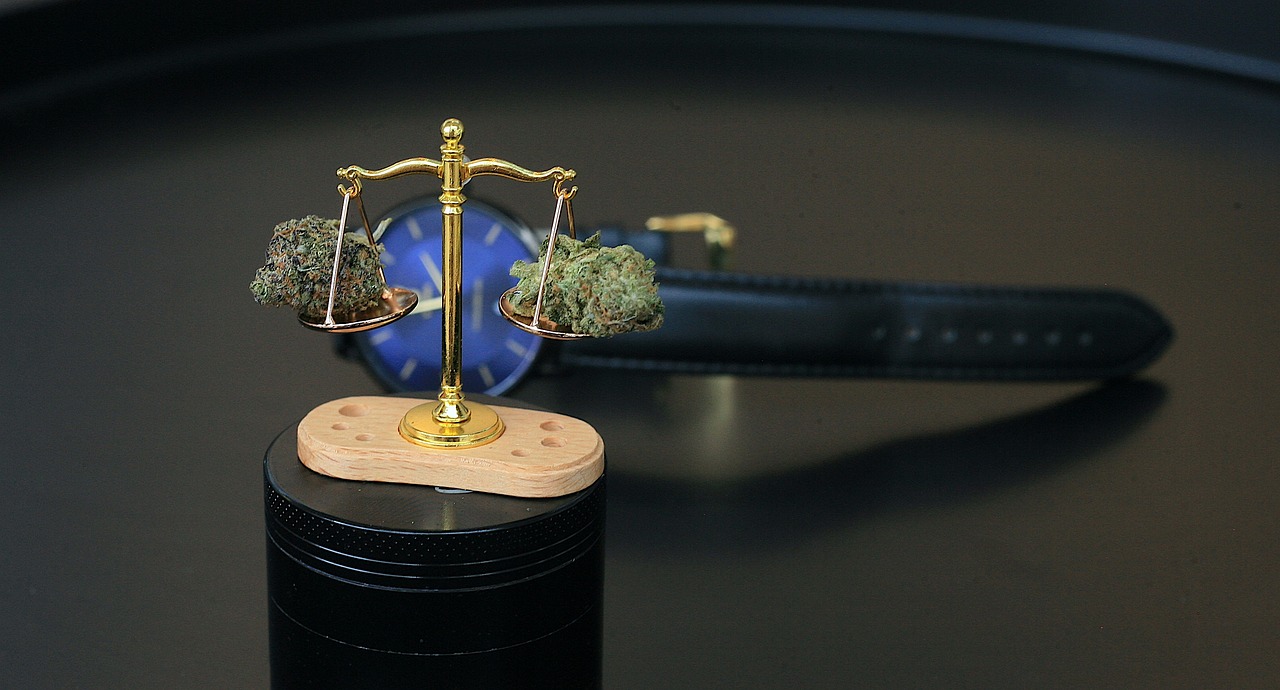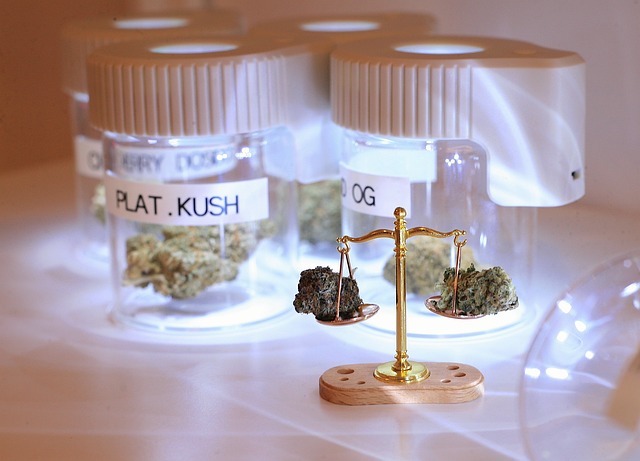Cannabis
Why Lauterbach’s Cannabis Law Is Criticized
The planned cannabis decriminalization by Health Minister Karl Lauterbach (SPD) is being sharply criticized from many sides. In fact, it is questionable whether the central goals of the project can be achieved. The biggest balancing act of the planned law is, on the one hand, to decriminalize cannabis and, at the same time, to warn against its consumption.

The traffic light government and Health Mininster Lauterbach had initially hoped that cannabis legalization would bring socio-political prestige, but now neither prestige nor legalization remains. Next week, the Bundestag will discuss a law that partially decriminalizes cannabis – and is being massively criticized from many sides.
But what exactly does the law, which is due to come into force on April 1st, mean for citizens – and which criticisms are justified? Read more about the legalization of cannabis in Germany and what Lauterbach thinks about it and find the latest cannabis news from around the world wit the Hemp.im mobile app.
The black market is likely to remain largely intact
The traffic light government had originally planned to allow state-controlled cultivation of cannabis and to enable its sale in licensed specialist shops. This would reduce contamination with dangerous substances and reduce the black market and organized crime.
However, nothing came of it: None of the three traffic light parties apparently had any idea that trading in cannabis would violate EU and UN law – and so the project was meekly scrapped.
Lauterbach’s crash landing
What remains is a slimmed-down solution that merely decriminalizes consumption and possession: private consumers will in future be allowed to carry up to 25 grams of cannabis in public spaces and up to 50 grams of cannabis at home. In addition, it should be possible to grow up to three plants where you live and to become a member of a cooperatively organized cannabis club. However, since both involve time, money and effort, it is likely to be particularly attractive to those who frequently use a joint in everyday life.
The many occasional users, however, will probably continue to call their dealers – and the black market will largely continue to exist.
It is controversial how much the burden on the police and judiciary will be relieved
Another aim of the law proposed by Lauterbach is to relieve the burden on the police, judiciary and security authorities. Previously, an investigation always had to be opened when consuming or possessing cannabis. The public prosecutor’s office could then decide at its own discretion whether to discontinue the proceedings or to file charges, depending on the amount of possession and the previous history of the person concerned. In 2022, there were a total of more than 174,000 such cannabis violations recorded by the police.
In the future, the effort at this point will be significantly reduced: only those who have more than 25 grams of cannabis in public spaces or 50 grams of cannabis at home are considered potential criminals – or are clearly involved in trafficking, for example by distributing the substance into many small bags, using several cell phones and conspicuously carries a lot of cash with him.
However, stakeholders from the police, criminal investigators and judges fear that the control effort could be greater elsewhere. For example, it will be difficult to find out where the person got their cannabis from: legally from a cannabis club or their own garden – or illegally on the black market?
In addition, there should be a consumption ban zone of 100 meters around schools and daycare centers. Although this will probably not have to be checked with a patrol car, police representatives fear that the effort will increase due to an increased number of calls from citizens.
The same applies to controlling the limit of three plants that can be grown in the garden. The criminal justice system also expects extra work: after the law comes into force, sentences that have already been imposed but not yet enforced must be issued – and files that may be thawing must be checked for this purpose.

Lauterbach Opinion: More child and youth protection is questionable
The biggest balancing act of the planned law is, on the one hand, to decriminalize cannabis and, at the same time, to warn against its consumption. Health Minister Lauterbach repeatedly pointed out the serious risks for people under 25 whose brains are still growing – and at the same time justifies the age limit of 18 years. There are fundamentally different views on the question of whether the law will lead to increasing consumption among young people or not.
The proponents of the project emphasize the education and prevention program, which is also part of the legislative package. They also point to successful examples from abroad: for example in Canada, where cannabis was legalized in 2018 and consumption among young people is said to have declined.
Warning call from pediatrician
“Cannabis release is intended to serve special traffic light clientele – at the expense of children”
Critics of the project, including all major pediatric and adolescent medical associations as well as the German Medical Association, point to other sources that claim to prove the opposite, such as information from the United Nations and some US states.
They argue that legal decriminalization leads to a lower perception of risk among young people and increases the distribution of the drug. In addition, the risk of consuming contaminated substances from the black market will hardly decrease. It is not yet possible to reliably predict which of the scenarios will actually occur in Germany.
What’s next?
Despite loud criticism from some SPD members of the Bundestag, a majority in next week’s vote is considered certain . In order to record possible opposing votes from the coalition, the Union faction has announced that it will request a roll-call vote.
However, it is still unclear how the Federal Council will decide, which is expected to deal with the issue on March 22nd. Although the cannabis release is not an approval law, the state committee can appeal to the mediation committee and thus prevent the planned entry into force on April 1st.
In addition, this law only represents the first part of Lauterbach’s cannabis plans
In the next step, Lauterbach wants to sell cannabis in specialist shops in selected model regions. In this case, approval from the EU is expected as it is intended to be a scientifically supported project. When asked, a spokesman for the Ministry of Health said that “preparatory work” was currently underway with other departments involved.
It is questionable whether the model regions will work in this legislative period. More speed certainly wouldn’t hurt: The Union parliamentary group has announced that it will reverse the entire cannabis decriminalization if it participates in government in the next electoral period.
__
(Featured image by sergeitokmakov via Pixabay)
DISCLAIMER: This article was written by a third party contributor and does not reflect the opinion of Born2Invest, its management, staff or its associates. Please review our disclaimer for more information.
This article may include forward-looking statements. These forward-looking statements generally are identified by the words “believe,” “project,” “estimate,” “become,” “plan,” “will,” and similar expressions. These forward-looking statements involve known and unknown risks as well as uncertainties, including those discussed in the following cautionary statements and elsewhere in this article and on this site. Although the Company may believe that its expectations are based on reasonable assumptions, the actual results that the Company may achieve may differ materially from any forward-looking statements, which reflect the opinions of the management of the Company only as of the date hereof. Additionally, please make sure to read these important disclosures.
First published in WELT. A third-party contributor translated and adapted the article from the original. In case of discrepancy, the original will prevail.
Although we made reasonable efforts to provide accurate translations, some parts may be incorrect. Born2Invest assumes no responsibility for errors, omissions or ambiguities in the translations provided on this website. Any person or entity relying on translated content does so at their own risk. Born2Invest is not responsible for losses caused by such reliance on the accuracy or reliability of translated information. If you wish to report an error or inaccuracy in the translation, we encourage you to contact us

-

 Crowdfunding2 weeks ago
Crowdfunding2 weeks agoDolci Palmisano Issues Its First Minibond of the F&P “Rolling Short term” Program
-

 Africa19 hours ago
Africa19 hours agoBLS Secures 500 Million Dirhams to Drive Morocco’s Next-Gen Logistics Expansion
-

 Fintech1 week ago
Fintech1 week agoRipple Targets Banking License to Boost RLUSD Stablecoin Amid U.S. Regulatory Shift
-

 Biotech4 days ago
Biotech4 days agoBiotech Booster: €196.4M Fund to Accelerate Dutch Innovation
























